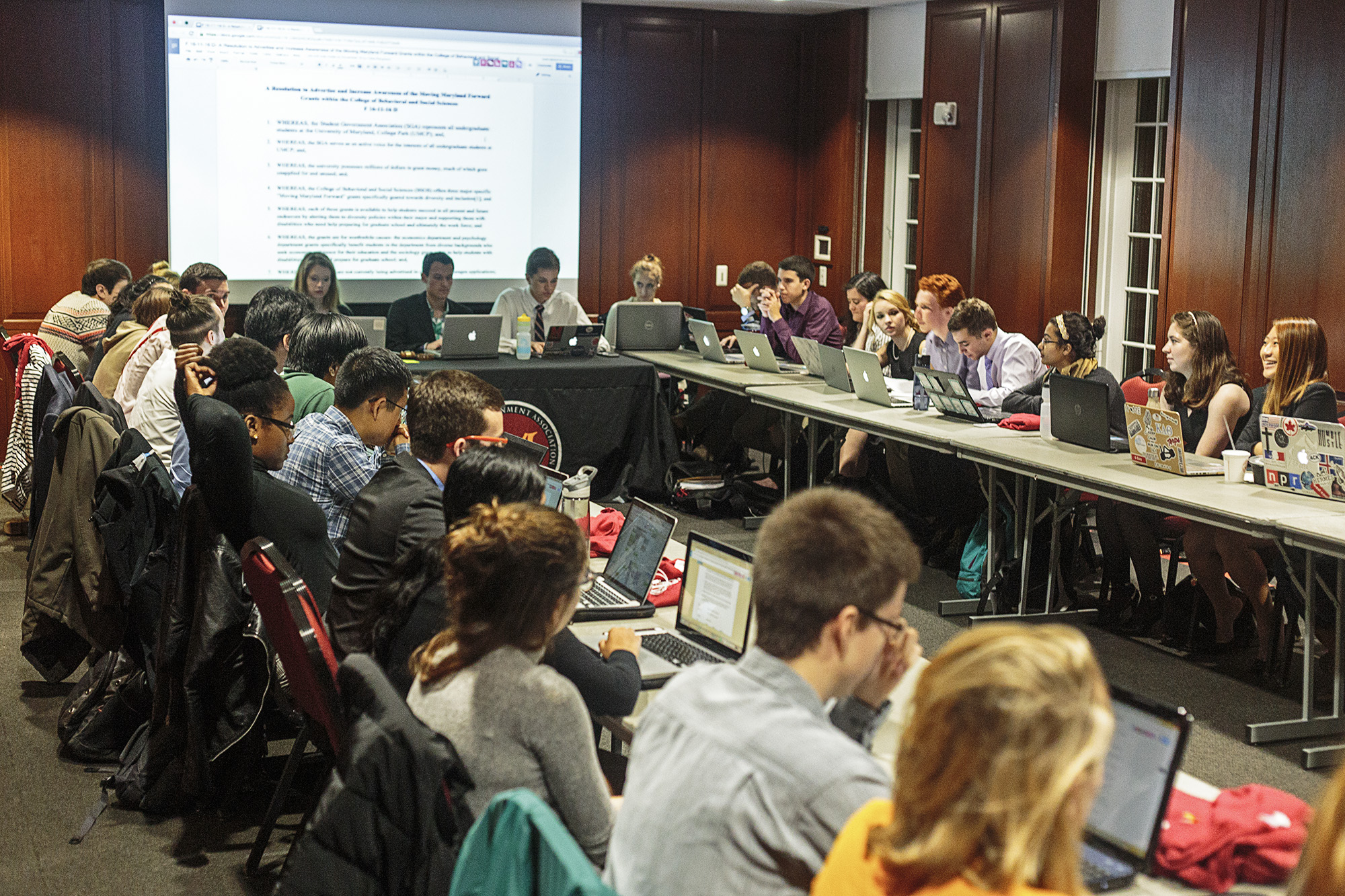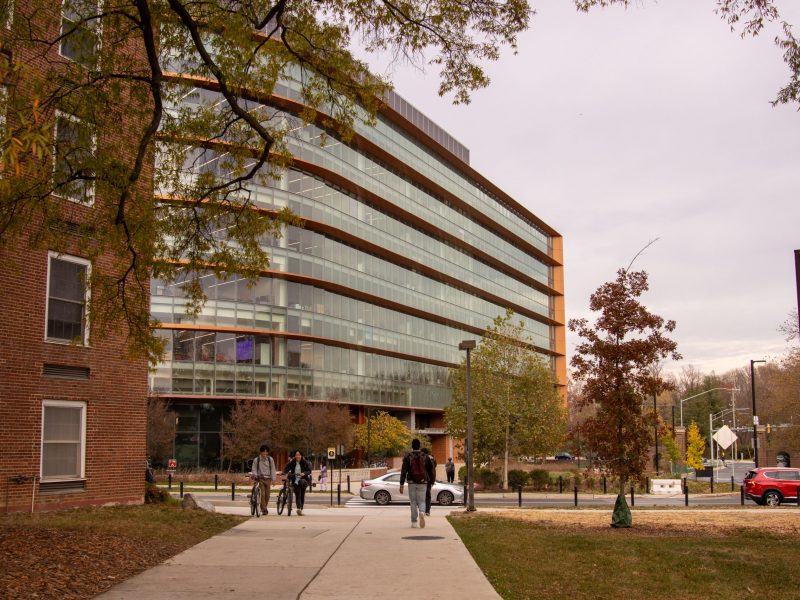The SGA voted unanimously Wednesday night to support the extension of a hydraulic fracturing moratorium in Maryland.
A two-year state moratorium on fracking passed in 2015 is set to expire Oct. 1. The Maryland General Assembly is considering a bill that would extend the moratorium for an additional two years and instruct each county to hold a referendum in 2018 in support or disapproval of fracking.
The Student Government Association passed its resolution after the Governmental Affairs Committee amended the bill to support extending the moratorium, rather than a permanent ban.
[READ MORE: University of Maryland SGA supports a statewide fracking ban]
Governmental Affairs Director Mihir Khetarpal voted in favor of the moratorium to break a 5-5 tie in committee, noting that both the Maryland Senate Education, Health, and Environmental Affairs Committee chair and the president of the Senate support a moratorium.
“We weren’t quite ready to fully support a ban without knowing the full effects of fracking,” Khetarpal said. “The bill will give more time to study the effects of fracking while still extending the moratorium.”
Hydraulic fracturing, or fracking, is the process of injecting high-pressure liquid into shale rock to release natural gas or oil. Supporters say fracking could provide economic benefits to western Maryland, but opponents have raised environmental concerns, saying the process can lead to groundwater contamination, air pollution and earthquakes.
The liquid contains contaminants that are “scientifically proven” to endanger the people who work at fracking facilities and surrounding communities, said Will Klajbor, co-director of the SGA’s Student Sustainability Committee.
[READ MORE: University of Maryland students want state lawmakers to permanently ban fracking]
“Have you ever seen those viral videos of people in Pennsylvania lighting their tap water on fire? That’s a result of hydraulic fracturing incidents,” Klajbor said. “It’s been our goal since the moratorium in 2015 to make sure students on campus knew about this issue and were educated and able to make educated decisions based on information we provide.”
The SSC will testify before a Maryland Senate committee Feb. 28 to support a permanent ban on hydraulic fracturing, said SSC co-director Christine Hagan.
“As someone who cares a lot about the environment, I would have supported a solution that supports the ban,” Hagan said. “In the spirit of trying to work together with the SGA I will take the solution, but it wasn’t what I was hoping for.”
A 2014 Towson University study found that fracking could generate more than 3,000 jobs and at least $5 million in tax revenue each year during peak drilling.
Klajbor disagreed, citing that fracking companies typically bring in their own workers to complete the job. When the company leaves, Klajbor said, restaurants and other stores built around the fracking well cannot maintain themselves after the company moves, leading to a more depressed economic state.
“It’s a dangerous game,” Klajbor said. “It’s essentially a really short-term solution for a long-term issue.”
While fracking in the state is most likely to occur in western Maryland, companies such as Shore Exploration and Production Corp. have expressed interest in fracking in Prince George’s County, so “this is something that could happen close to home,” Klajbor said.
Prince George’s County passed a fracking ban in 2016.



